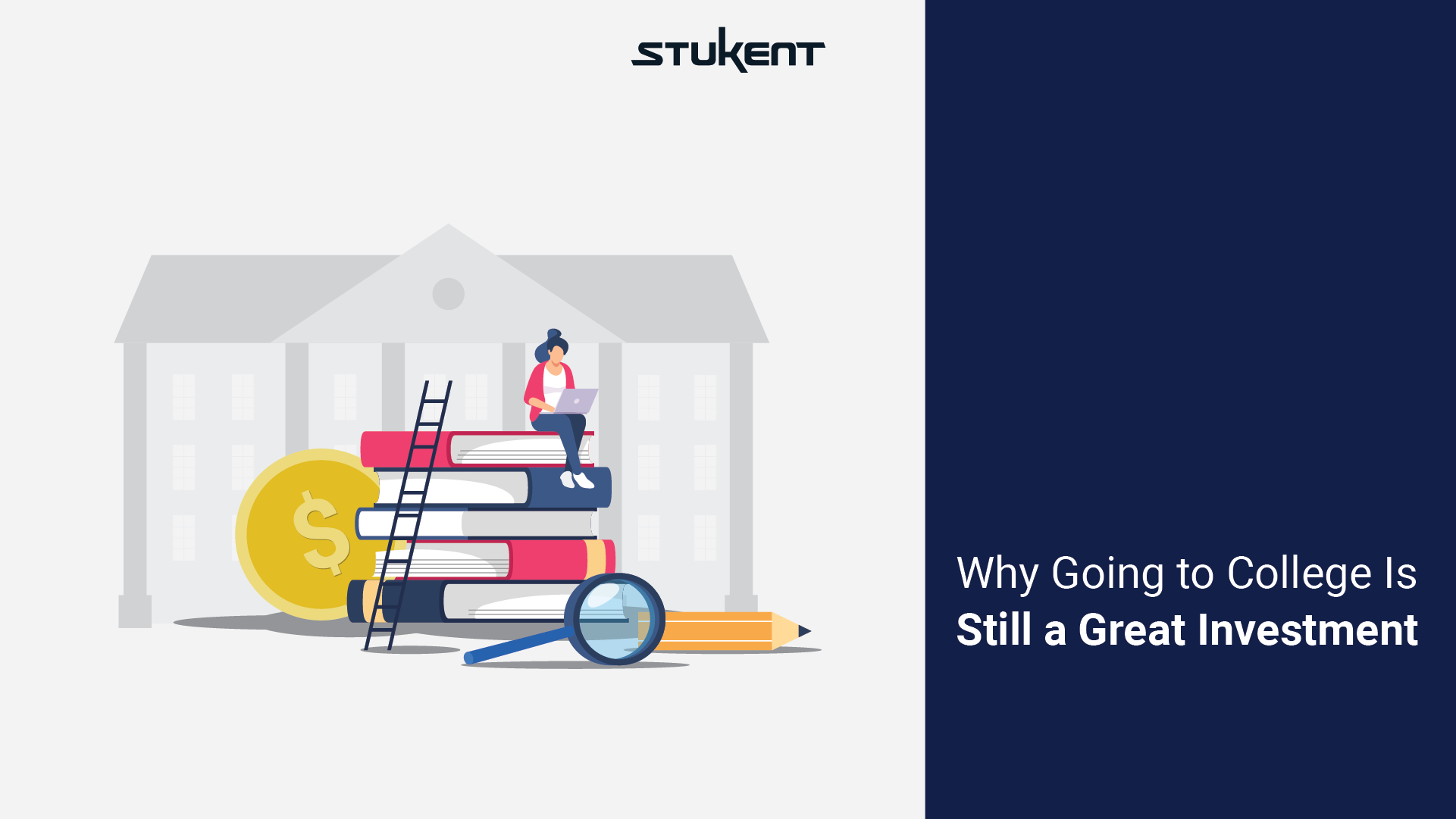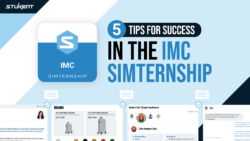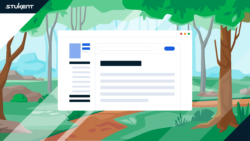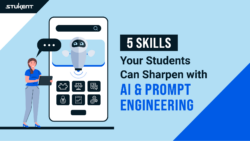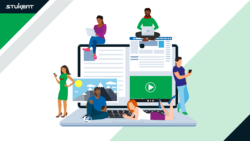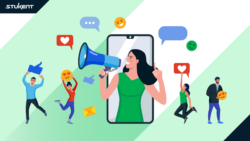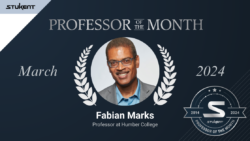The founder of the famous Kodak company, George Eastman, once said:
‘The progress of the world depends almost entirely upon education.’
George Eastman was a major donor to learning institutions like MIT, University of Rochester, and historically black colleges like Tuskegee University and Hampton University. He died in 1932, and almost a hundred years later, there are plenty of arguments for and against attending college.
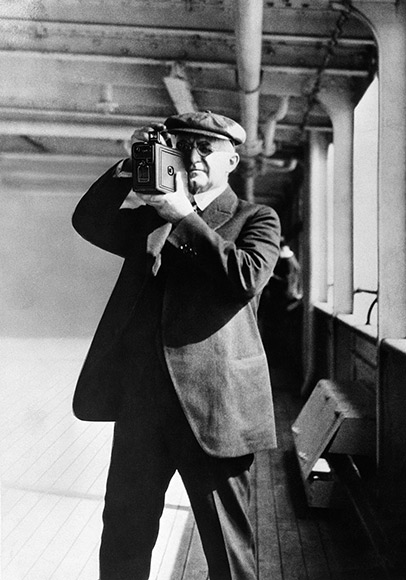
The world is changing quickly. With the widespread availability of information online, the total amount of student debt, and COVID pandemic lockdowns, plenty of reasons have made it easier and more popular for critics to dismiss college altogether.
So why is college important? Is it still necessary to get a college education at all? Here are 5 ideas to think about that show the college experience provides unique benefits to learners today and in the future.
1. Capture Success Correlated With College Graduation
According to data from the Bureau of Labor Studies, a degree still contains weight in society, especially in these areas:
- Higher wages over time
- Less unemployment over time
- More adaptability in the labor market
Everyone wants to make sure they have enough money to put food on the table and a roof over their head, with extra to spend on other things and experiences they enjoy. On average, college graduates will have higher income and face the challenges of unemployment less.
One reason for this concept is that at most colleges, you are given the opportunity to take elective courses that don’t directly correlate with your major. Sometimes students don’t understand why it might be important to learn about different topics. But the most dedicated students jump on those opportunities to understand different industries, disciplines, mindsets, and challenges — which makes them more employable in different labor markets. This is where a love of learning can be cultivated and why college is still correlated with success.
2. Supercharge Your Personal Network
The purpose of college isn’t just to learn a discipline and get a degree. One of the greatest strengths of college is its ability to experience a community of like-minded individuals.
For example, some students don’t immediately realize the intangible benefits of college sports and arts events, competitions, clubs and groups, and unique dorm experiences. But over time, proactive students utilize these social resources to make as many new connections as possible.
These environments and locations are catalysts for creating networking opportunities and friendships. College is one of the fastest ways to meet possible lifelong mentors, or even people who might hire you in the future.
One extreme example of this is Mark Zuckerberg’s experience at Harvard. Though he ended up dropping out, he met his future Facebook co-founders (Eduardo Saverin, Andrew McCollum, Dustin Moskovitz, and Chris Hugues) at Harvard.
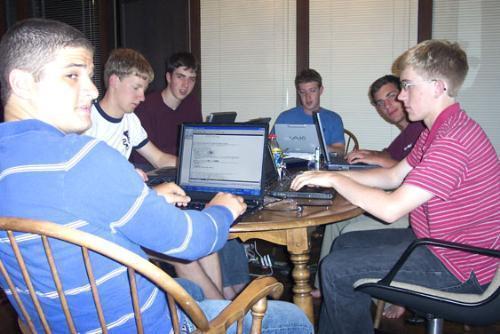
Their social environment created real value that resulted in the creation of one of the most influential cultural movements of all time and one of the biggest American companies ever. For that to happen, the university’s mission brought together like-minded individuals.
Networking happens at colleges all the time, whether that’s making new connections in classes, at activities, within social circles, or elsewhere. As students strive to meet new people with diverse backgrounds, they open themselves up to more monetary and social opportunities.
3. Adopt a Mission-Oriented Mindset
Every institution of higher education has a vision for the type of impact they would like to create in the community and world.
For example, Arizona State University has an emphasis on innovation and taking on big challenges in its community. In the research and funding realm, ASU has taken on the challenges of biofuels, sustainability, and business funding. The work of the university forms the culture of the university, and only students at that institution can experience its highly-complex culture.
These vision-based experiences come from the students’ everyday classes, their participation in groups and events, and their interactions with the faculty and researchers they meet. The culmination of all these experiences produces graduates who are built to make a specialized impact. A graduate at ASU will understand the importance of taking on big challenges in their community, and a graduate at another institution will be specialized to make impacts in other ways.
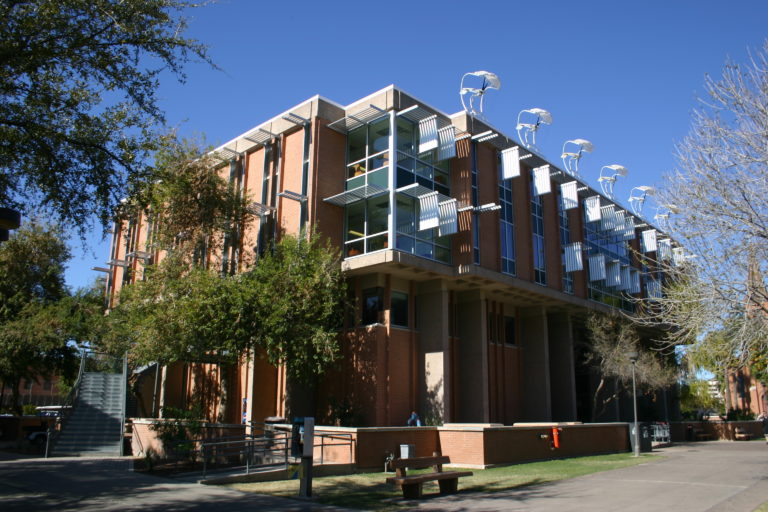
4. Learn How to Learn
Faster learners get better jobs. Better learners see more opportunities to take on the hardest challenges of humanity. One example of a great learner is Elon Musk, who said:
“When I was in college, I wanted to be involved in things that would change the world.”
Elon Musk, who received his bachelor’s degrees in economics and physics at University of Pennsylvania, is an extreme example of knowing how to learn well. He’s professionally disrupted transportation, space, electricity, banking, and neurotechnology. It’s hard to know so much about so many different disciplines if you don’t know how to learn.
Every semester, students take on the challenges and responsibilities of learning new things in different domains. The mental and emotional energy it takes to do this week after week and semester after semester results in the benefits of practice. Once graduates take on challenges in the workforce, they’ll be well prepared because they have learned how to learn during semesters prior.
5. Become Technically Skilled and Valuable
Having a degree doesn’t mean you can automatically apply your knowledge in a meaningful way. This is why many students do an internship or work-study program. Many students try tapping into their personal network and apply their skills in web design, marketing, social media, or graphic design to get informal work experience.
It’s really easy to get real-world experience once a student has graduated and is working at their first entry-level job. But learning institutions are getting better at providing that real-world experience in the classroom.
Colleges, universities, and other institutions of higher learning still provide unique benefits to students. Stukent is trying to help educators provide their students with resources that bridge the gap between being a student and being a prepared professional with real-world skills.
Through learning simulations and extremely relevant courseware resources, educators are more easily preparing their students for the real world. Stukent provides cutting-edge simulations and courseware to help educators help students help the world. Courses that use Stukent resources instantly become more engaging, easier to prepare for, and provide real-world skill-building opportunities for students to talk about in a future interview or when faced with a unique challenge in their career.
Download our case study on the effectiveness of our learning simulations. 👇
Get the FREE Simulations Case Study
- 7-page case study in PDF format sent to your inbox
- How many students recommend Stukent’s Mimic Marketing Principles simulation over the leading competitor’s learning simulation?
- Are students feeling prepared even in hybrid and online learning environments? What can be done to improve course outcomes without increasing workloads on instructors?
- Learn how a marketing principles simulation might fit your course
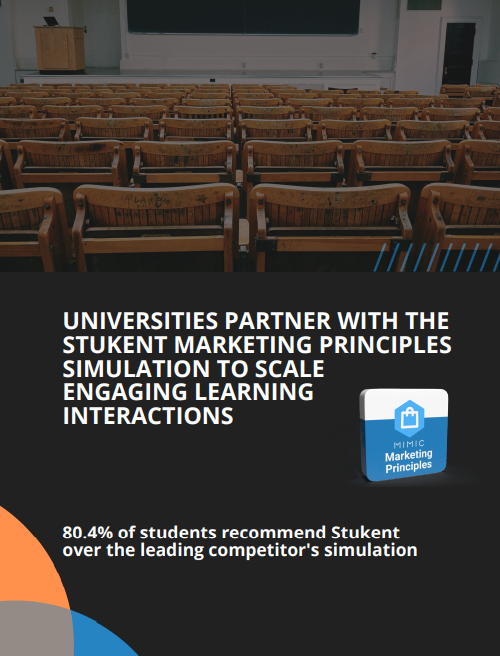
"This simulation is worth its weight in gold. It breathes new life into your lectures and brings the terms, concepts, and vocabulary to life. Students are no longer memorizing concepts to pass the test but they are using the concepts and being forced to make "real-life" scenario-based decisions that they will be using every day in their professional career."
Jack LaBaugh, BYU-Idaho professor of marketing
